Have you ever wondered what the early days of SEO were like? In this episode, I’m excited to host Shelley Walsh, a digital consultant with over 20 years of creative marketing and tech experience in the trenches. Shelley has been published extensively across industry publications and has spoken at many online and offline events. She currently works as the SEO content strategist for Search Engine Journal.
But what makes Shelley truly unique is her passion project, The SEO Pioneers. In this fascinating interview series, she speaks with the O.G.s in the SEO industry about the early days and origin of SEO.
In our discussion, Shelly recounts the love of history and story that inspired her to start Pioneers, the creativity of black hat SEOs, the importance of surrounding yourself with smart people, and her deeply rooted belief in visualizing success.
Shelley opens up about struggling with imposter syndrome and shyness and the ways in which she pushes herself out of her comfort zone. She shares her perspective that SEO has evolved into classic marketing and that doubling down on the fundamentals of brand building and serving your audience will set you up for long-term success. It’s an enlightening conversation. So, without any further ado, on with the show!
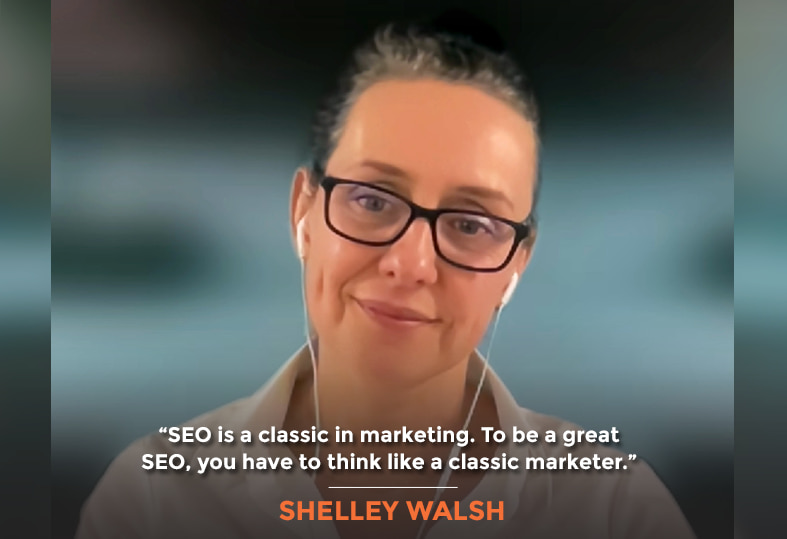
In This Episode
- [02:02] Stephan introduces Shelley Walsh, SEO content strategist and creator of the SEO Pioneers podcast. Shelley shares insights into the early days of SEO and its origin, providing a historical perspective on the industry.
- [11:39] Shelley highlights the altruistic nature of the SEO industry. She and Stephan discuss the evolution of collaboration, from forums to social media, and how it has led to the current state of content marketing.
- [20:35] Shelley expresses a fascination with Blackhat SEO tactics, citing creativity and innovation.
- [24:18] Stephan and Shelley talk about SEO Oktoberfest and Chiang Mai Conference as places to learn more about SEO. Stephan shares how he had a book deal with Rand Fishkin.
- [32:16] Stephan and Shelley emphasize the power of giving away valuable content for free to build trust and drive sales.
- [37:08] Shelley describes how she overcame imposter syndrome and pushed past her comfort zone.
- [47:54] Shelley shares a valuable piece of advice for the listeners, encouraging them to apply it in their SEO and content marketing strategies.
- [54:55] Stephan asks Shelley’s favorite classic book.
- [58:40] Here’s how to connect with Shelley Walsh.
Shelley, it’s so great to have you on the show.
Hi, Stephan. It’s great to be here. Thank you very much.
Yeah. First of all, talk about how you ended up creating this Pioneers podcast series about the early pioneers in the SEO industry. What inspired you to come up with this?
Yeah, it’s really funny being on this side of the table, Stephan, for once. I’m used to being the one driving the driving seat and asking questions, so this is quite a different experience for me.
SEO Pioneers, interestingly, the concept came about two and a half years ago. It was a combination of different inspirations that led me to the point. First of all, I love biographies. I love people’s stories. I think everybody has a really interesting story to tell. I think as I’ve become older, I’ve become interested in history.
Just try things; keep throwing things at the wall until you find something that works for you.
I’ve tried lots of different types of content over the years. I’m a big believer in just trying things; just keep throwing things at the wall until you find something that works for you. I was looking for a good side project, something interesting for me to work on. Looking at all these different parts of inspiration that brought me to this point, I suddenly thought, well, nobody’s looked back at history.
For me, I thought to look back on what came before, you’d have to do that before you can move forward. I thought it’d be really interesting to go right back to the beginning of the industry. It feels like we’re 25 years in now, and the industry is starting to mature. It felt like we had enough longevity to look back at the origin, the early days, to see what people were working on then with a view to looking forward, especially at the moment with everything changing so rapidly.
I feel like often, when things are changing so much, it’s really good to go back to fundamentals and look at what happened before to keep a level of stability. Originally, interestingly, the Pioneers was going to be a series of long-form articles. I like writing. I thought it’d be interesting to combine, doing some interesting long-form articles on specific industry influence and leaders who were at the beginning of the industry to get their personal stories.
I was really looking for that combination of their personal story, the human element combined with SEO. The videos were actually just going to be my research. After filming the first one, I realized that I really like videos. I never got around to writing a long-form article. I fell into it. It evolved, and I quickly realized that this was working really well as a medium.
The pioneer that I was speaking to, the very first one, was Ammon Johns. Obviously, he mentored a lot of industry greats himself. There was Michael Bonfils. I was fortunate to speak to Bill Slawski. I think I’ve actually got the last interview with him just before he sadly passed, his untimely passing. Greg Boser, Dave Naylor. I’ve spoken to a lot of really interesting people.
I also think a really big motivation as to why I wanted to start it was that I’m a really big believer in surrounding yourself with people who are smarter than yourself. I think probably a lot of people probably suffer from imposter syndrome. I still have that feeling that I’ve been in this industry a long time, as if the more you know, the more you don’t know. I like to surround myself with people who are smart, see what they have to say, and learn from them.
Learning is a big passion. It combined a lot of elements, which was a personal passion that seems to have really resonated with the industry. It’s interesting that I don’t think there’s anybody I’ve come across in our industry who hasn’t seen one of the Pioneers so far. I’m always quite surprised how many people have actually been watching it.
Yeah, that’s awesome. Congratulations on that. It’s funny when you were talking about whether you were planning to do long-form articles or just have this in a textual format. That reminded me of how I started my first podcast, Get Yourself Optimized. Actually, the original name was The Optimized Geek.
I started in 2015 as interviews for creating textual inclusion in a book I was working on. I was going to throw away the interviews, and I realized this was gold; I should be using this. I should be posting this as audio content. Back then, it was more of an audio format. Now, almost always, you’re going to want to post your videos and your podcast. But back then, I did audio-only. A few years into it, I realized I needed to be doing videos, not just audio. The rest is history.
I started the Get Yourself Optimized podcast, the Optimized Geek, first to augment my book with some great case studies, quotes, and things like that from experts. A few months into that, I realized I should be doing a marketing show as well, and that’s where we’re talking now, on Marketing Speak.
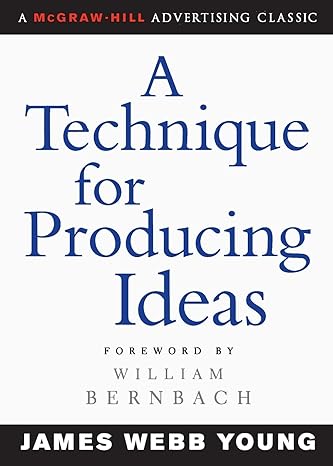
The text is great, but there’s something special about the AV format in terms of capturing people’s tone, enthusiasm, insights, and prognostications.
Yeah, it’s funny. I’m just experimenting with video now. I literally never thought I would do a video. I was always in written content, et cetera. Years ago, I did a video strand in one of my communications degrees, and I thought I would never do this again, but I’m just really enjoying it as a medium. I think more than anything, I just really enjoy talking to people because people have fascinating, interesting stories.
I’m quite a shy person and don’t really like putting myself in the spotlight, but I love finding out about other people and how they came to where they are. I’m just learning. It’s that combination of learning and conversations, as well as my passion and love for the industry and everything tech geek. It just all came together in that perfect mashup. I’m sure you get it yourself, right? You really enjoy this; you enjoy what you’re doing.
I do. I feel like I’m revealing light in the world by doing it. Even if it’s about marketing, there’s some sort of nugget there that will help people to be more connected, more in service, do something bigger and better, and help others. I know that this is helping people. The people it’s meant to help, it will help.
Do you not get a lot out of it yourself, though?
Yeah, I do. I’m sure that you’ve got questions, ideas, and things you want to ask to bounce off experts and different topics in SEO, and you get the opportunity to do that in the interview format.
Yeah. What’s been really fascinating is every single person that I’ve spoken to has a different approach to SEO, and that’s what makes it so fascinating. In our industry, it’s amazing that there are so many approaches that you can take, and everybody brings something different to the table. I almost thought, “Oh, maybe all the interviews will end up the same; people will tell the same story.” But their experience and perception are totally different from the next person.
What I have found is that I’ve learned a real gem, an absolute nugget, from every single person I’ve spoken to. Those are all individuals. There is so much in there for other people to learn as well. If they watch, there’s something in every single one. It’s a real gem, and there are some really surprising stories as well—some very funny stories if you listen to Dave Naylor.
I remember our early wild experiences at the Googleplex playing werewolf with Matt Cutts and a bunch of SEOs, many of whom he considered black hat, and having a deck that back then was called SEO Moz had created, and I was in that deck. It’s like all sorts of crazy things. Lots of stories, lots of great stories.
One thing that I think you’ll enjoy hearing about is the history of SEO and its history in general. It’s a quote from Mark Twain. “History doesn’t repeat itself, but sometimes it rhymes.”
I like that. That’s nice. Yeah
We’ll learn stuff from history not because we’re going to repeat it but because we’re going to learn some lessons that would rhyme if we didn’t change our tack. There are mistakes that people made in the early SEO industry days in terms of their interfacing with Google, trying to collaborate with other SEO people, or whatever. There are many lessons there that if you take the lesson on, you don’t have to repeat it or get the lesson in a slightly different way.
I think what really came across back then was that it was such a new industry. There was no guidebook. There was no learning for people. Everybody came from a different industry. Everybody started out with an interesting story because everybody else had a career before becoming an SEO.
The more you give away your knowledge, the more space you create to be filled with new ideas and insights. It's a cycle of generosity breeding creativity. Share on XThere’s quite a diverse range of backgrounds, but it was really self-learning and feeling your way. It was a very community-led good forum. People connected, and people had to connect to learn. There was a lot of collaboration. I think our industry is so unique.
One of the things I love about it so much is the collaboration that has brought everybody together, and we’ve managed to sustain that incredibly. Even though we’re all in competition with each other to some degree, we’ve managed to be very altruistic. Everybody gives away a lot of information. I love this industry.
I remember our early days of forums like Webmaster World, Digital Point, et cetera, that really helped shape the industry. There was a lot of collaboration and a lot of helpfulness out there. People were not getting paid to share their insights or help people figure out and get around a problem. There’s a lot of that altruism still out there in the industry. Even if WebmasterWorld is not really a thing anymore for most people, it’s the energy of it that still survives.
Yeah. I really don’t think the industry would have evolved as it has without the forums. What’s interesting is they’ve probably now moved over to social media, and there are a lot of closed groups as well. There are still a lot of people out there giving away really good information, and they invest a lot of time in it. But if you look like that, I suppose it’s the ultimate content marketing.
We’ll learn stuff from history not because we’re going to repeat it but because we’ll learn some lessons that would rhyme if we didn’t change our tack.
For example, John Mueller used to be incredibly active in the forums and invested a lot of time giving. That was how Google contacted him to go and be their social liaison. That works for him, and it’s almost like the ultimate content marketing, putting your knowledge out there. The more you give away, I guess a lot of people have that belief of, “Oh, don’t tell everybody your ideas. Don’t tell people what you’re doing.” But the more you give away, I think, the more it comes back to you.
I was always a big fan. I don’t know if you remember Zig Ziglar. Zig Ziglar used to say that if you help enough other people, you’ll get what you want. Helping enough other people will give you what you want. I think that is a great philosophy to have.
Yeah. A corollary to that is if you want to become a millionaire, help a million people. If you want to become a billionaire, help a billion people.
Yeah, absolutely.
I think of it as business karma. What goes around comes around. If you want to make a real impact in the world and through your business and be successful in the process, just have that intention of revealing light in the world, being helpful, and giving without the need to receive something back because that’s true giving. It’s not horse-trading.
Yeah, a hundred percent. I know from doing Pioneers how much time it takes to do it. I’m sure with you doing this show and other people who create shows and produce great content, it’s a massive time investment. But it’s a good thing. I approach everything with integrity, how I run my business, and how I conduct myself in every manner.
One of my favorite sayings is what matters is what you do when nobody’s watching, and that’s pretty much how I live my life in terms of always trying to be a hundred percent professional with a hundred percent integrity and just give as much as I give way too much to my clients. I’m perhaps not the best businesswoman in the world, but I give a lot. I think that speaks back because the people I work with, I tend to work with them for a long time. They love working with me, and I love working with them, so that speaks for itself.
Yeah, that’s great. Do you have any favorite online marketing communities that are very vibrant and alive these days? I just name-dropped some of the early ones that aren’t active anymore: Webmaster World and Digital Point forums.

For example, on Facebook, I get a lot of value from a couple of groups. One is called Never Held Back, NHB, and the other is Internet Marketing Super Friends. They’re both very large, vibrant communities with thousands of people in each group and very active posts happening every day.
Lots of really valuable insights and resources are shared. If you’re looking for a direct-response copywriter, it’d be one of the first places to go if you didn’t already have somebody in your virtual Rolodex. You just go on to those two groups on Facebook, search within the groups for copywriters or direct responses, and find some amazing gems there. What are your favorites?
I’m just skimming through my Facebook groups because I’m involved in so many. Dumb SEO Questions was a great group. Ammon Johns was active in this, and Ammon still had that forum mentality where he would just write out essays and responses.
He still gives away so much and invests much of his time in teaching others. But unfortunately, he got banned. There was a problem with the group, and a few of the admins were removed. Sadly, he’s no longer in it, but that used to be a great group.
What matters is what you do when nobody’s watching.
I also find that these days, I’m involved in quite a few WhatsApp groups. I think closed groups are where things are going on now. I don’t think people have moved away. Maybe it’s just more of a protection of being able to speak in a small group, not necessarily speaking in a wide group. You can speak more openly and speak with a more closed circle. I’m in a few private groups.
I also think that with events, I’ve always gone to Brighton SEO and found it one of the best conferences. I’ve been going there for a long time. Interestingly enough, one of the very first Brighton I went to, I did a limited edition infographic poster for them, which I’ve still got a copy on my wall.
By the way, Kelvin, founder of Brighton SEO, was a guest on this podcast. That was a great interview.
Yeah, I was looking through it. Kevin’s incredible. He has amazing energy, a fantastic energy. I don’t know how he does it. It’s impressive organizing that event. What is taking it from just a small room above a pub into a multinational conference now? It’s incredible.
I think the small groups and smaller events; I’ve been going to a few smaller meetups. I went to an amazing one last year, which was small. It was a semantic search in London. It ended up that several engineers from Google were turned up. It had been kept very quiet. There were only about 15 of us in the room. Dixon Jones was there. Of course, Dixon is always at every event if you know Dixon.
Yeah, I do.
Dixon attends events for a living. That is his job. There were about 15 of us, and there was a very high level of conversation. I talked to some of the Google engineers, which was very insightful and interesting. I think those small closed events moving forward are where more interesting things are happening, taking it down to smaller spaces again and groups online and offline.
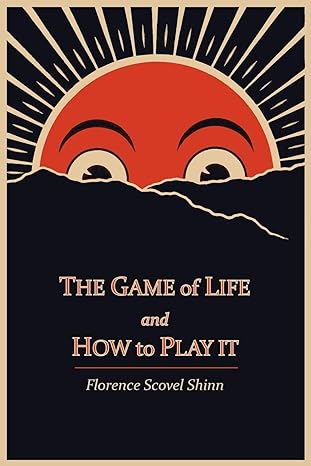
Awesome. I’m curious if, in these closed groups, you hear a lot of black hat conversation, like black hat SEO tactics and things like that. That, back in the day, was meant to be shared privately and not Google engineers spying on what they were up to. Although the black hat world was public, it’s just that everybody had handles. I was never a black hat. I always did the white hat SEO. But back in the day, the black hat world was very popular as a forum.
I’m fascinated by black hats. It fascinates me so much because I think the most creative people in the world wear black hats because of some of the schemes they come up with. I remember when I spoke to Greg Boser, he told me that he had created almost a Wikipedia PBN. It’s just the creativity. How do you even come up with the idea?
I remember Michael Bonfils telling me about how he was building directors, and he had all these different personas to actually build out his own community and forum. He had these incredible ideas and the creativity that goes into it.
I very rarely now come across people. I’m not in those communities. I know a few people who wear black hats. I won’t name any names. But for me, I am all about creating really great quality content. That’s why I believe in it. It’s what I’m passionate about. I’m passionate about the distribution of information.
I love content; I love good content. I don’t believe in filling this amazing entity that we have, which is the internet, with spam rubbish. I believe in trying to give something good to the world. Like you’re saying, bring the light.
Black Hat is still working, and they’re in certain industries. They are doing very well, and from what I believe and the conversations I have, it is incredibly lucrative. I know that, at the end of the day, people aren’t particularly honest with their figures. But from what I believe, some guys are making incredible amounts of money, especially in gambling affiliate spaces, still to this day.
Focus on what's really important in growing your brand: prioritizing your users and building a community. Share on XThe circles that I move in are doing things the right way, I think. More and more conversations I have now are about brands. I also have a lot of one-on-one conversations with people. I meet up with people a lot. I put a lot of investment into my network. I talk to a lot of super-smart people.
One of my favorite people to speak to is Arnout Hellemans. Shout out to Arnout. He is on another level. I tried to meet up with him on a regular basis. He’s a great guy, and we have some great conversations, but I’m always sworn to secrecy. Anything that is shared is just between us.
I don’t come across a black hat. Obviously, I have the conversations, and we still share things that are not shared publicly. It’s not the same. They’re not scams, tricks, or works around. I think most conversations now are based only on one thing: putting the user front and center because that’s what everything is built around. There’s a lot of talk about semantics and entities. It’s more about focusing on the user than anything else.
Actually, I think that’s what all of SEO hangs off of that. That’s everything. Why do something? What is the point in trying to drive traffic to a site once it gets there? It’s irrelevant traffic, or there’s no aim. Okay, now I realize the stupidity of what I just said because if you are a black hat, the whole idea is just to get traffic to a site, and that’s it. That’s where it ends.
The rest of us working in marketing have completely different perspectives and objectives: to get qualified people and build a community.
The rest of us who are working in marketing have completely different perspectives and objectives, which are to get qualified people and build a community. It’s all about building an audience. I do like to hear the stories. I love to try and find out what they’re doing, but for me, I don’t bring in black hats. Why do it all?
One of the best places, apparently, for the black hat stories, the really good ones, is SEOktoberfest. That’s an event every year that I never went to. I’m never called to go. I don’t like beer. I don’t like brats, the meat, and all that. So, I had no interest in Oktoberfest, generally speaking. SEOktoberfest was tons of beer and meat, as well as many behind-closed-doors discussions on SEO, black hat stuff, secret tactics, and things like that.
That’s interesting. I know a lot of people who go to the Oktoberfest, but I’ve never been. As you say, I don’t drink, it’s just not my idea of fun.
Not for me either.
From what I believe, the real black hat one at the moment is probably the conference in Chiang Mai. It’s not black hat orientation, but to take it offline, which Gerry White organizes is– I’ve not actually managed to make it to one yet, and I was supposed to go to one last year in Sofia, which I regret missing. Again, it’s going back to these almost closed days and trying to cultivate this conference where it is all about chatting and sharing high-level ideas.
I think that’s what Ungagged was supposed to be about: what happens and stays in the conference. I think the take-it-off lines are probably really the ones to watch for some really good cutting-edge. It’s not a black hat. Gerry White is not a black hat at all. It’s not a black hat event, but in terms of high level, I think that’s what I wanted to watch.
I remember that even with the more traditional SEO conferences, there were some behind-closed-doors sessions that were not supposed to be blogged about and then ended up getting blogged about. Anyway, I pitched to Danny Sullivan for his very first SMX Advanced Conference to have a session on sharing your best secrets, and it was called Give It Up. I was on the panel, and I shared my super secret tactics that I had figured out.
Actually, I ended up getting a book deal because Rand Fishkin was also on the panel at the next conference a month later at SCS Toronto. He came up to me in the speaker lounge and gave me a hug. I hardly had ever spoken to him before. We had a great conversation and decided to do a book together. In that same session, we called Danny Sullivan, who happened to be there, but there were no coincidences. We were at the Foo Camp, Friends of O’Reilly conference, at that moment.
He’s like, “Well, I’m sitting next to one of the acquisitions editors here at O’Reilly. I’m going to ask if they’d be interested in an SEO book, and I’ll be right back.” By the end of the conversation with Rand, we had a book deal verbally. We’re in just one conversation, and it all happened because I was altruistic and uncensored when sharing with my seeming competitors in the audience.
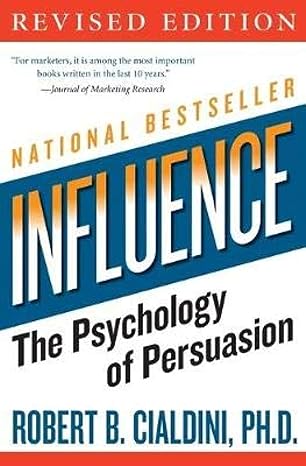
I got people to raise their hands if they knew the technique that I was sharing. I shared seven of them, and almost nobody raised their hands. There was one that I knew nobody would know, the Aaron Wall SEO book. He raised his hand, and I was like, “You’re fibbing,” I was thinking to myself. I’m all about giving and not trying to have an agenda or horse trade; then the universe will reward you. But don’t do it for the rewards; do it because that’s who you are.
Yeah, it’s an approach that I a hundred percent believe in. What you’re saying is give away. It’s interesting because there’s that trade-off where you know that if you put a really good tactic out there and it gets into the open space, it’s going to get spammed to death. It’s going to get leveraged. Eventually, it’s not going to work anymore.
As we know, a big part of what we do is trying to bring new approaches that Google isn’t going to shut down. Obviously, that’s more looking at, I guess, more older black hat stuff now. Where we’ve moved to now is more classic marketing, but there is still that trade-off, isn’t there? If I put this out into the open space, is it going to ruin it for the work that I do?
I think the belief I’ve also taken is, and I’m trying to remember where this came from, it’s years old advice—I think it actually goes back to when I was at art college—don’t hoard your ideas, don’t hold onto them. Just give it away. By doing that, the very process of keep giving it, you’re creating that vacuum that, by very nature, is going to get filled.
If you keep holding on, you’re not allowing yourself to almost give yourself space to come up with something fresh and new. This industry is about constant evolution. It’s about constantly bringing fresh ideas to the table, so just keep giving them away. By doing that, you’re going to keep filling yourself up with new ideas, and you’re going to keep looking for new things to do, and you’re going to keep moving forward. Give it away.
I remember the expression; information wants to be free. Have you heard that before?
No, I haven’t.
That comes from a conversation between Stewart Brand and Steve Wozniak at the first Hackers Conference in 1984.
If you keep holding on to ideas, you’re not allowing yourself to almost give yourself space to come up with something fresh and new.
I am a huge advocate. The reason why I’m so passionate about the internet. I’m a voracious reader. When I was growing up, books were everything to me. I think the most interesting people are the people who read extensively. The invention of the printing press was one of the singularly greatest inventions in the history of mankind because it took information out of the hands of the favored few that had control over it, and it opened up that distribution on a wider level.
Then, the internet came along, and the digital revolution opened up information to the whole world again. It’s communication. I think why I love it and what I do so much is that I’m constantly having conversations with people all day. I’ve got friends in every country all around the world. I’m chatting to people all around the world on a constant basis. You’ve got all that information at your fingertips.
I’m pretty old now. I did my dissertation at an art college. I had to actually go to a physical library in London, get on a train, go to a library, and speak to people to gather information. Now, it would probably take me a couple of hours to do that online. We are spoiled for choice of what we have at our fingertips. It is amazing.
Being a part of that, feeding this information is what really drives me. Learning and communication are huge drivers for me, and I love them. I think that combination of all that is why I love SEO and content marketing so much. It’s just a shame that it gets ruined. Everybody says, don’t they? SEOs, this is why we can’t have nice things because as soon as a technique comes out, SEOs, we just ruin it, and then it ruins the internet for everybody. If you listen to The Verge, that’s a different story.
Speaking of giving away your best stuff and information and wanting to be free, it reminds me of a quote from Frank Kern, one of the OGs of internet marketing, who talked about results in advance. Results in advance, the way he defined it, was giving away your best stuff.
Let’s say you have an online course. You teach how to play the guitar, for example. You give away, for free, how to play the F chord, which is challenging. Some feel stuck in playing the guitar in the early parts of their learning process. They’re probably struggling with the F chord. You give them that result in advance of conquering that particular issue, and then you offer the course.
By giving away your best stuff for free and giving away those results in advance, people are more inclined to sign up with your program and pay for your course. They will associate the value that they received for free with what they paid for with their investment, not just the stuff they paid for. Even though you gave away your best stuff for free, they will lump that in mentally into what they got for that investment of whatever dollars they spent with you.
By giving away your best stuff for free and giving away those results in advance, you can make people more inclined to sign up for your program and pay for your course.
Yeah, I think people really respond to generosity. I think generosity goes a long way, and people really recognize that. I’m a big believer in building thought leadership content and giving us way as much as you can. It’s interesting, actually; I think you probably find that people, even if you give it all away, will still end up buying something, even if you’re almost just replicating what you’ve given away for free.
Maybe it’s like that trade, the basic human driver of reciprocation where I give you something. That was probably in Cialdini’s Influence book, wasn’t it? I think they did an experiment where they were giving flowers away for free. Yeah, great book.
Yes, I’ve had him on the podcast. He’s amazing.
Yes, you have. You’ve spoken to some incredible people. I’m quite jealous of your roster, Stephan.
Aim higher. You’ll do better.
I need to up my game.
I learned the old adage in 1995 when I went to a Karrass seminar on negotiating, and it really stuck with me: Aim higher; you’ll do better. If there’s somebody who is just like a dream for you to interview, put that person on your list. Visualize that that’s already done. I learned in Kabbalah class that if you desire something, the fulfillment has already happened.
Yes, I am a big visualizer. I know this is a bit random, but I use a lot of visualization in everything I do. It does work 100 percent if you’re focused. You plan, focus, and visualize it. Yeah, it does.
You have to put the work in. You don’t just sit there and go, oh, I visualize a million pounds, and it will fall on you. You’ve got to do your part. It’s amazing how it works. It’s almost like magic.
It is. You live in a magical universe. Everything is energy. Matter is just energy slowed way down. It makes total sense if thoughts can turn into things, which they can because thoughts are energy. Things are energy. You’re just changing one form for another.
I think the moment that I started planning and using spreadsheets quite aggressively to plan my life, it really changed everything for me. I’ve achieved more in the last five or ten years—especially in the last five years. I’m really focused on planning; it’s incredible. I would also like to reach out to what you’re saying to the guests, reaching for a higher level. I started long ago, and it seemed almost impossible to achieve.
Aim higher; you’ll do better.
I remember going to my first Brighton SEO conference while trying to break into the industry. I went to the conference on my own. I didn’t know anybody in the industry. I was standing in the corner of the room, terrified, thinking, “How will I do this? How am I going to break into this?” I was looking at the people speaking on stage and all the names, thinking, “Oh, my God, how did you get there?”
I put myself out there; I worked hard. Within a few years, all those people, my friends, my network, and then I became the person on stage talking. You just keep pushing and taking it to a higher and higher level of reaching out until barely; there probably is nowhere else to go.
Speaking of putting yourself out there, you admitted that you’re shy and have imposter syndrome. How do you overcome that to put yourself out there, be comfortable and uncomfortable getting on stage, talk to powerful people, and all that? How do you conquer those feelings?
I have a fridge magnet that says life happens outside your comfort zone. I’m a big believer in striving to be comfortable with being uncomfortable. I lived my life for a long time within my comfort zone of not wanting to push myself, and then I recognized and realized, there’s no doubt about it, I’m a very driven person. I realized that to achieve everything I wanted, I would have to start pushing myself and pushing myself hard. Those feelings of being scared, nervous, afraid, and anxious will never disappear. You just have to learn to sit with them and operate anyway.
The first few interviews were terrifying when I started doing the Pioneers. I still sometimes get a few butterflies. Before I came to do this show, I got slightly anxious. I find speaking on stage very, very, very challenging. It’s much easier to speak online. I find it difficult to have people in front of me, but I just have to become comfortable with it. There is no other way but to push yourself. It’s amazing what you can achieve by becoming comfortable with being uncomfortable.
I’ve been having a lot of problems with sleep in the last few years. Being able to still operate and function when you’re so sleep-deprived is a real skill. Otherwise, you’re not going to do anything, are you? But if you want to do anything, you must throw yourself off that cliff.

I started a side business a few years ago, and it was terrifying. I used to wake up in the middle of the night with my heart racing at 3 AM. I just threw myself off a cliff. I planned it; I looked at it. I thought, well, yeah, the numbers work. I can see the strategy. I’ve got a backup plan. It all seems to work.
It was, I guess, what Warren Buffett calls a calculated risk. At the end of the day, you’ve still got to stand on that cliff edge. Even if it is calculated, you must just throw yourself off. It’s terrifying, but there is no other way. You just got to do it.
Yeah, I love that. It reminds me of the quote, “Leap and the net will appear.”
Yes. I’m trying to think. There’s another quote. “As you take the first step, the path builds in front of you.” It’s like you’re walking in the dark on the path, and you have no idea how it will open up. But the more you plan and prepare and the more you take steps, the ground comes up to meet you as you just keep walking. I guess you just keep walking every day, don’t you?
You just keep pushing yourself forward and trying to be better than you were yesterday. If you can’t keep doing that every single day, then you can’t. If that’s not good enough, then it’s not good enough.
Just keep pushing and taking it to a higher and higher level of reaching out until barely; there probably is nowhere else to go.
It was interesting as well that of all the pioneers I spoke to, a lot of them have imposter syndrome. That’s really interesting. I think the more you start to speak to people that you would consider very high-level people at the top of the industry, the more you realize that they’re all just normal people like we are. I’m sure it’s the same with celebrities.
I love Tim Ferriss. I’m a huge Tim Ferriss fan. He managed to interview some impressive people. I love his interviews with Arnold Schwarzenegger. I think Arnold Schwarzenegger is incredible. He’s got a great mentality and confidence. I don’t think that guy has self-esteem or imposter syndrome.
I don’t think he has self-esteem issues, but he’s got that amazing drive and work ethic—he works hard for something. But at the end of the day, these people—they’re just all normal people. I think the more you get out there and put yourself forward, the more you recognize and realize everybody has the same anxieties.
I had imposter syndrome, too. I wrote a whole article for the Huffington Post about it. Psychology Today found out about that article because it did pretty well. They invited me to participate in an article they wrote for Psychology Today, and then I said yes. They would have me be on the cover, and I got scared. They have a photo shoot, and my wife was like, you’re going to be the poster boy for imposter syndrome. Are you sure you want to do that? And then I pulled out.
When was this?
I don’t know. It was ten years ago, maybe eight years ago. It was funny.
How ironic, isn’t it? You were nervous when you pulled out of being the poster boy for imposter syndrome.
Yeah. I didn’t want to be labeled or pigeonholed in this idea of being an imposter. Everything is perfect like this. This universe is just this setup. It’s a rigged game in our favor, of course, but it’s a rigged game.
I also think that the more you understand and experience something, the more your imposter syndrome actually grows. In those early days, you have the new starter confidence of, “Oh, yes, of course, I could do this, I can do anything, I’m brilliant at this.”
The more you start to speak to people you consider very high-level at the top of the industry, the more you realize that they’re all just normal people like us.
I look back now at the work I was doing when I started, and was like, ‘Oh my God, that was so embarrassing.” It’s awful. But at the time, you’ve got that confidence. I feel I know less now than I did because I know more now. The more you do know, it’s just how complicated it is. You realize you’re never going to know everything. The older you get, you realize you’ll never know everything. You just have to be more comfortable with that.
Yeah. “Feel the fear and do it anyway.” to quote Susan Jeffers.
Yeah, I remember reading that 20, 25, 30 years ago. How did you overcome your imposter syndrome, Stephan? What did you do?
What I did is rather than try to face it head-on and address it, I just let go and let God. I had a couple of spiritual awakenings that changed everything for me. I don’t identify as my ego anymore. If things happen that would hurt my ego, I’m not so bent out of shape. It’s like, “Okay, this is all part of what is meant to be my story. That’s fine. This is a lesson, this is an opportunity, this comes from God.”
You’re less focused on looking good and not looking bad if you get a glimpse of the bigger picture. Some people have an Ayahuasca journey, some other plant medicine, or something. I didn’t have anything induced that way; I just prayed one night in the middle of the night. I prayed for a job, which sounds weird.
I talked about this more in my other podcast, Get Yourself Optimized, which is my personal development podcast. I was shown the matrix. I was showing this whole illusion that we live. It’s all an illusion. Yeah, it’s all an illusion. That changes how you relate to concepts like imposter syndrome. As Ram Dass said, “We’re all just walking each other home.”
Yes, I do relate to what you’re saying. I understand it’s about detaching once you understand what awareness is. When you can get into that place of awareness, recognize that you can detach from the madness of reality and everything that’s going on. I still haven’t managed to overcome the very physical challenge, like everyday life’s anxieties. Do you still get anxious and nervous about things?
Not so much. I was rarely nervous on stage, but I got nervous in front of the TV. I haven’t had any recent TV appearances, but I did 13 or something like that. After enough stress inoculation appearances, I got immune to it. But if I were to get on TV now, I’d probably feel some butterflies. But beginning in stages doesn’t affect me.
To be a good SEO, you have to look across all channels and focus on what's really important so you can be in a strong position. Share on XWe’re all works in progress. It’s not that I’ve figured it all out. I just have to remind myself every moment that I’m walking in two worlds simultaneously. I’m walking in this world, and then the more real world is the one where we’re walking each other home. As long as you keep reminding yourself you’re less invested in a particular outcome, attached in a particular way to something happening or something, you are better at letting go and letting God.
Is it that TV that makes you so nervous?
I guess speaking on stage, you don’t get a chance to edit after the fact either, but I don’t know. I just have an audience of many people sitting in their living rooms, and I don’t know how many it could be, thousands, hundreds of thousands. I had no idea. That intimidated me.
Now that I’m speaking about this, it seems kind of silly from where I’m now. Maybe I wouldn’t be nervous on TV if I were to do it again. I will be on TV again; it’s just a matter of when. Will I be nervous? Will I have butterflies? I don’t know. I don’t want to speak it into existence and say I probably will. I’ll have a positive expectancy that I won’t, that I’ll just be natural and in the flow.
You seem like a very natural person. You’re very at ease, being able to talk.
Marketing is about putting the user in front and center of everything you do.
Thank you, and you as well. I know we’re getting up to time here. Do you have any last nuggets of wisdom you’d like to share with our listener or viewer, something we may haven’t already spoken about?
Yeah, I guess some of this has been marketing-orientated. I feel like we’ve talked quite widely about other things. For me, marketing, as we touched on before, is all about putting the user front and center of everything you do. I think that is often missed in SEO to a degree. I think we’ve become so focused on other metrics.
I also really like the idea of building an audience and a community. I think that works well and can work on almost any level. Interestingly, I’ve been at SEJ since last year, when I rebuilt their contributions program. I brought in new talents to write and contribute to us and managed our list of countries. I built a diverse range of writers covering all topics, some really great talent in the industry and new talent.
Also, with what I’ve done with Pioneers, it might be a really small subscriber count that I have on Pioneers, so it might, on the face of it, seem not necessarily successful at this point. But actually, in my community, I don’t think anybody I speak to has seen one of the Pioneers, especially people I put on a really high level and that I deeply respect and look up to. It always amazes me when I talk to people, and they say, “Yeah, we saw one of your Pioneers.” I’m like, “oh gosh, that’s incredible.”
I’ve been looking a lot at content where content is developing and lots of different forms of content online recently. What’s interesting, I’m finding, is that there are a lot of small local businesses—for example, in the UK, many small local businesses are starting to leverage Instagram and doing it really, really well.
For example, an average tradesperson is like a builder. You would never imagine them particularly creative, but they’re putting together these great hyper-lapse videos. Some of them are managing to leverage doing some fantastic how-to videos. They’re building up a really strong community in their sphere of influence.
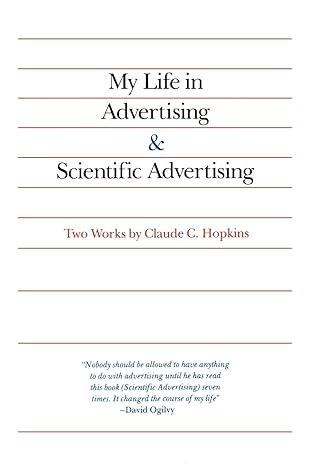
Once upon a time, I would have thought community building was only for big brands. Actually, I think it is for anybody. Any level can achieve that. I know that the term personal brand is a bit of a funny term, but I think focusing on the brand is becoming increasingly important. I think it will only become more important as we move forward, particularly with all the disruption we’re seeing in SEO at the moment with the integration of AI, SG, et cetera.
Nobody knows how this is going to play out. In these times of real flux, I think it’s important to go back to the basics and focus on what’s really important. If you can focus on what’s really important, then you’ll always be in a really strong position, no matter what is changing around you. Therefore, those things are focusing on your user, building your audience, having a direct relationship with your audience, and building a community around yourself.
If you can build a community in a way that you’re not dependent and reliant necessarily on one third party provider such as Facebook, I mean people bought built communities on Facebook and they suddenly had it switched off overnight, try to leverage your reach across many channels, and then you’re not dependent, you’ve not got one single source of failure, and particularly try and get your email listed if you can, that’s the most important thing.
I think building your brand, your direct relationship, and cultivating your brand to have that relationship with people directly translates to any area. I think it’s the same in the entertainment industry. I think it’s the same in local tradespeople, big businesses, and sports teams. At any level in the world, it’s all about connecting with your users and building your brand around that. I think I’m really investing now.
I’m quite interested at the moment in looking at more social media community building as well, whereas I’ve been really invested in SEO content strategy for the last several years. That’s been my real focus. With everything changing at the moment, I think that potentially, having communities on socials as well is going to be more important for everybody. We’re not going to be able to rely on search result pages in their current form.
Particularly, I see that search is going to be divided across AI assistance integrated into phones. That’s going to change how people search, so you’ve got to find ways to reach your audience in new ways. If you can connect with them, particularly on social, that will be stronger. It’s a robust way to sustain your brand and business rather than being so dependent on a medium and channel you have no control over.
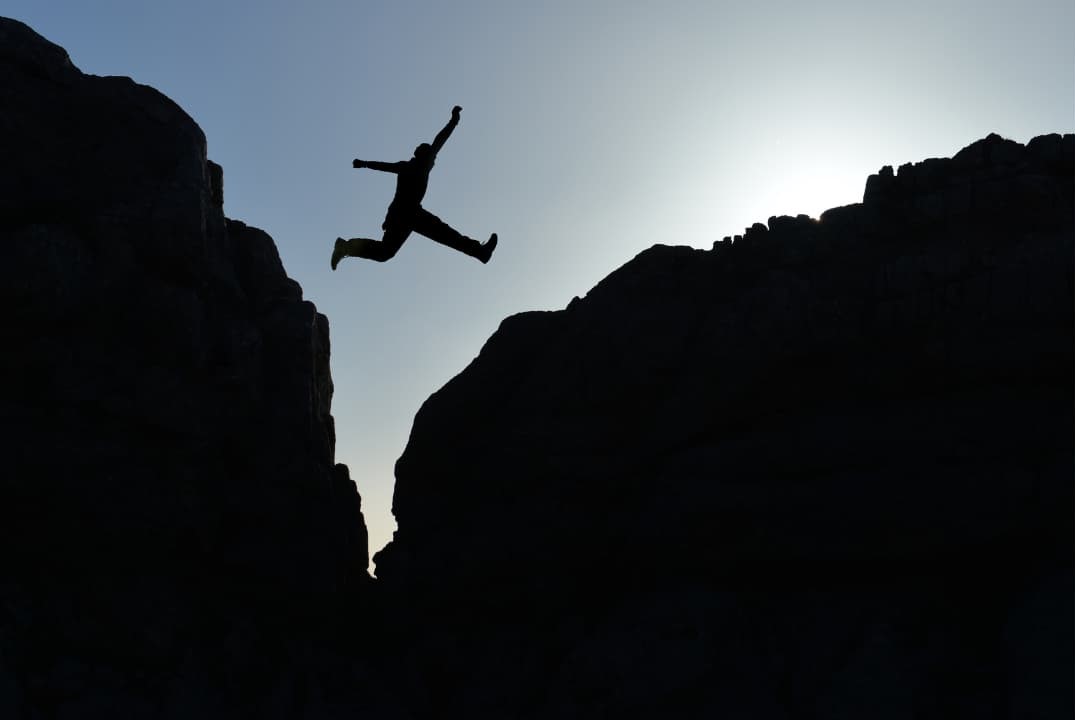
SEO Google has been incredible for the last 25 years. Even how great Google is, anytime a site can get a penalty, get removed, or something can happen, it wipes it out. Everybody has seen this happen. I think everybody has had a client or has been in a situation where they’ve had a site that has just tanked overnight. It’s gone, burnt, not coming back, and their income’s been switched off. To build a brand around that is very unreliable.
SEO is now classic marketing. SEO is not just really SEO. I think it is marketing. To be a really good SEO, you have to look across all channels and think like a classic marketer as well.
I used to read many of the classic direct marketers, Schwab, Hopkins, et cetera, and some classic early books from the early 1900s. They were written around 1920. A lot of the fundamentals of what they say, what they wrote about then, and direct marketing translate perfectly into email marketing.
You look at how that progressed to media and radio advertising, which translated to TV advertising. That then translated to video advertising. It’s the same medium cycles, just in new channels. My real advice in anything is that we’re in real flux right now. Go to the fundamentals and double down on your classic marketing and brand-building.
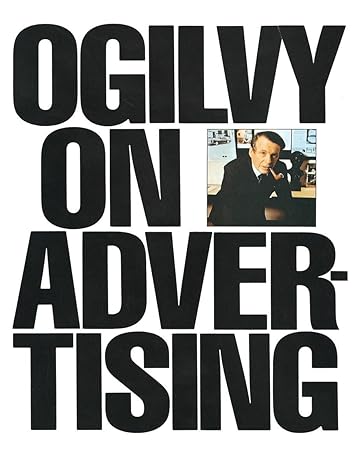
Do you have a favorite classic book from the 1920s that you want to recommend?
Claude Hopkins. Is it My Life in Advertising and Scientific Advertising? I can’t remember the exact title. I have to say, though, that my all-time favorite, the hero, has to be Ogilvy. I know he’s become really popular now. I’m also almost disappointed in a way because he felt like my secret when I discovered him a long time ago.
I love Ogilvy, and I love his whole mentality and philosophy. Particularly, I think why I connected with Ogilvy before he became a marketer; in his own words, he said how he built his agency so quickly because he didn’t get into advertising. I think he’s in his 40s or late 30s. He said I was late to the game. I was hungry, so I had to make it work, and I had to make it work fast. But before he did that, he did many random things. He was selling augers from door to door, which was a real challenge. All those random things he did helped feed him as a marketer.
It was interesting that I’ve done many diverse, different, interesting things from my background. I started in print design. I’ve done print design, illustration, web design, classic marketing, editing, and public offline magazines. Also, being a designer and a creative, but also somebody who’s got writing skills, and then also somebody passionate about business, bringing all those together diverse cross-sections, I think helps me to look at things from a lot of different perspectives to bring a different approach to how I work and operate.
Awesome. Some listeners will say this connects with me, and I want to hire Shelley. Hopefully, that person will write an email to you right now. The two books you recommended from Claude Hopkins are My Life in Advertising and Scientific Advertising. Those are two different titles. David Ogilvy has this great book. He has multiple books, but Ogilvy on Advertising is also a classic.
I’ll throw in one of my favorite old-timey books, The Game of Life and How to Play It by Florence Scovel Shinn. It’s not per se an advertising or marketing book, but it’s really about how to play the game of life, how to work with this matrix reality, actually manifest what you desire, and bring it into existence, thoughts into things.
Go to the fundamentals and double down on your classic marketing and brand-building.
Actually, Stephan, there’s just one other really small book. I was just googling who the author is. This is an amazing little book. I’m sure a lot of people probably know it. It’s called A Technique for Producing Ideas by James Webb Young. It’s a really small book. You can probably read it in one evening. That, I think, was written in the 1930s. It’s an absolute classic for brainstorming and thinking. I used to write a lot about creativity and thinking techniques, which is a real gem.
Awesome. I’m going to check that out, too. A Technique for Producing Ideas by James Webb Young. Got it. Can you just share your main website address for our listeners?
Yes. I’ve got two websites. My personal one is shelleywalsh.com. There is an article listed in the top ten books on creativity. There are some really interesting books. If you want to read more books about creativity and thinking skills, check them out. That’s shelleywalsh.com.
My business site is shellshockuk.com. The channel that I’m most proud of is SEO Pioneers, and that’s on YouTube. It’s youtube.com/@shelleywalsh, not the Americanized spelling version. Check out SEO Pioneers because every single episode has an absolute nugget and a gem of information from every single person.
I’ve learned more from speaking to these people in the last two years than I have in the past 15 or 20 years. It’s been incredible. I cannot recommend that enough, not because of me, but purely because these guys have really got some interesting things to say. Guys and girls have got some very interesting things to say.
Awesome. Thank you for all your work in the world, Shelley, to reveal light and help make the world a better place. Thank you, listener, for your efforts to make the world a better place, too. We’ll catch you in the next episode. I’m your host, Stephan Spencer, signing off.
Important Links
Connect with Shelley Walsh
Books
Businesses/Organizations
People
Previous Marketing Speak Episodes
YouTube Videos
Your Checklist of Actions to Take










About Shelley Walsh
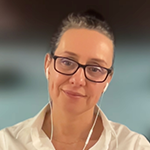 Shelley Walsh is a digital consultant with over 20 years of creative, marketing & tech experience. In the last 14 years, she has been published extensively across industry publications and spoken at many events online and offline. She works with SEJ as their SEO content strategist and as an SEO content consultant for brands in the UK and US to help them achieve measurable results. Shelley also produces The Pioneers, a series of interviews with influential people about SEO and the early days of the industry.
Shelley Walsh is a digital consultant with over 20 years of creative, marketing & tech experience. In the last 14 years, she has been published extensively across industry publications and spoken at many events online and offline. She works with SEJ as their SEO content strategist and as an SEO content consultant for brands in the UK and US to help them achieve measurable results. Shelley also produces The Pioneers, a series of interviews with influential people about SEO and the early days of the industry.







Leave a Reply